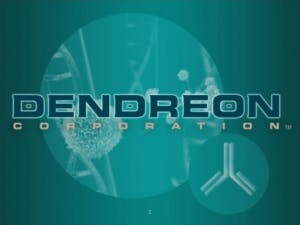The immune system doesn’t generally attack tumors on its own. Immune cells are designed to attack foreign invaders but leave the human cells alone. Since tumors are just human cells growing out of control, the immune systems don’t recognize the tumor as a problem.
Scientists have tried to use vaccines to entice the immune system to attack the tumor. Just like vaccines for viruses, cancer vaccines train the immune system to find proteins specific to the target. Unlike typical vaccines, the cancer variety wouldn’t be given to prevent a tumor from forming but used to stimulate the immune system to attack after it formed.
The strategy has failed. Miserably.
Scientists at the University of Texas’ MD Anderson Cancer Center think they know why. A report in Nature Medicine suggests that the incomplete Freund’s adjuvant, or IFA, a mineral oil-based adjuvant, could be the problem.
IFA is used because it stimulates the immune system, producing a stronger immune response. When scientists look at the killer T cells after infection, there are plenty of cells that recognize the target. The immunization is training the immune system, but the T cells aren’t killing the tumor.
It turns out that the IFA and the target used to train the T cells sticks around the vaccination site. Instead of attacking the tumor, the T cells find the IFA more enticing, attacking it and signaling for other immune cells to come help.
The IFA isn’t alive and T cells can’t actually kill it, but they’re willing to die trying.
The one that worked
Dendreon Corporation (NASDAQ:DNDN)‘s Provenge recruits the immune system to attack the tumor and has been shown to extend prostate cancer patients’ lives.

One reason it worked where others failed is that Dendreon Corporation (NASDAQ:DNDN) trains the cells outside the body. The patient’s immune cells are removed and sent to a lab, where they’re exposed to an antigen that trains them to attack prostate cancer, and then they’re infused back into the patient, where they recruit other immune cells to attack the tumor.
The system works, but it’s fairly costly, since the treatment is individualized for each patient.
Mass training
Technically, Bristol Myers Squibb Co. (NYSE:BMY) Squibb‘s melanoma treatment Yervoy helps the patient by stimulating the immune system, but the stimulation isn’t specific to skin-cancer cells. Instead, the drug blocks an inhibitory signal between dendritic cells and cytotoxic T lymphocytes the dendritic cells train. With the signal blocked, the lymphocytes are free to attack the tumor.
Even more general, Sanofi SA (ADR) (NYSE:SNY)‘s TheraCys, one of the treatments for bladder cancer, involves putting bacteria called bacille calmette-guerin directly into the bladder through a catheter. The bacteria, which is also used in tuberculosis vaccines, attracts immune cells that also attack the bladder cancer.
Solving the vaccine problem
Provenge, Yervoy, and TheraCys work. All of them are FDA-approved. But they’re cumbersome and/or appropriate for only certain types of cancer. Developing a simple vaccine that could be injected would be much easier.
The obvious solution could be to just avoid using IFA that attracts immune cells to the injection site, but the IFA was there for a reason: to boost the immune response. Another adjuvant could be used, but there are no guarantees that the vaccine will stimulate the immune system enough. Oncothyreon Inc (USA) (NASDAQ:ONTY)‘s Stimuvax, for example, used a lipid to help train the immune system to recognize tumor cells expressing the cancer-associated marker MUC-1, but the drug failed to show an effect on lung cancer patients in a phase 3 trial reported last year.
Vical Incorporated (NASDAQ:VICL)‘s Allovectin shouldn’t experience issues with having immune cells attracted to the injection site, because Allovectin is injected directly into the tumor. Vical Incorporated (NASDAQ:VICL) has some evidence that once the cells are trained locally, they can attack other distant sites where the tumor cells might have migrated to. Data from the pivotal phase 3 trial is expected in the middle of this year.
Still risky
The insights from the discovery at MD Anderson will help move cancer immunotherapies further along, but given the long list of failures, it’s still a risky area to invest in. While the payoffs for a successful cancer vaccine would be huge, most investors would be wise to watch from the sidelines until the technical problems get worked out.
The article Understanding Why Cancer Vaccines Fail originally appeared on Fool.com is written by Brian Orelli.
Fool contributor Brian Orelli has no position in any stocks mentioned. The Motley Fool owns shares of Dendreon.
Copyright © 1995 – 2013 The Motley Fool, LLC. All rights reserved. The Motley Fool has a disclosure policy.

